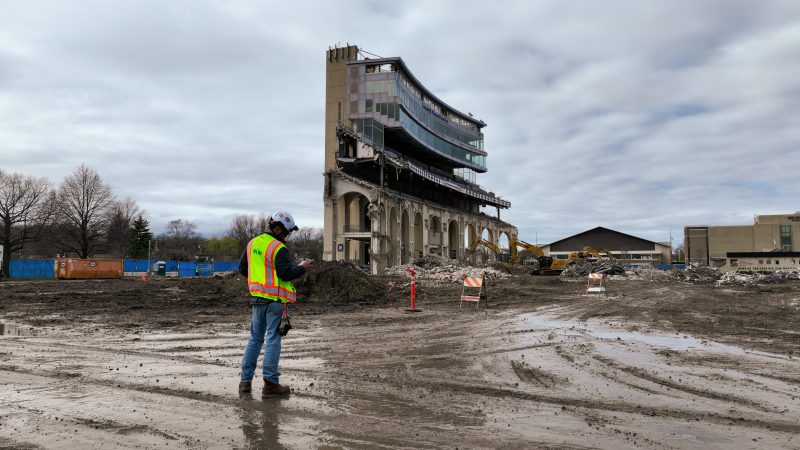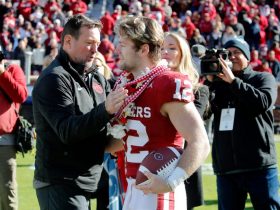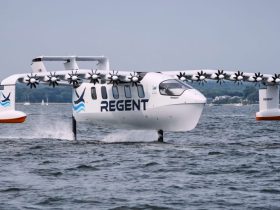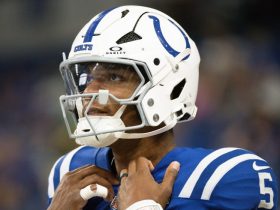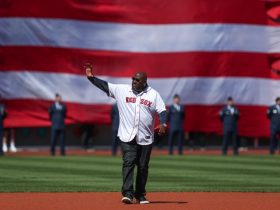Jesse Marks, Northwestern University’s deputy director of athletics for development, had one question on his mind earlier this year. Where would Northwestern’s football team play in 2024 and 2025?
The Wildcats’ home stadium – Ryan Field – was set to undergo a massive rebuilding project. It would start with a demolition in the early months of 2024 and end with the new-and-improved field’s grand opening in 2026. It was up to Marks to figure out where the football team would have its temporary home for the two years in between.
Given Northwestern’s proximity to Chicago, there were more than a few options for Marks to choose from. Wrigley Field and Soldier Field – the historic home fields of MLB’s Chicago Cubs and the NFL’s Chicago Bears, respectively, were two of those options. So was SeatGeek Stadium – the former home of the MLS’s Chicago Fire – in Bridgeview, Illinois, located five miles southwest of Chicago Midway Airport.
A new solution emerges
There was one overarching problem with all these options. As Northwestern officials, including Marks, traveled to each of these potential options to take tours, the length of the commutes became an apparent issue.
“You either have to drive through or around Chicago to get there, and that takes some time,” Marks said in an interview with USA TODAY. “We know the majority of our fans are in the North Shore area that comes to the games … having that type of drive for the majority of our games wasn’t good for anything.”
It would not have been a good experience for the athletes, either.
“It’s probably a three-hour gap from when the game would end to when they’re back on campus, tailgating or hanging with their parents.”
That’s when a new idea emerged. For the last eight years, Northwestern’s women’s lacrosse and soccer teams have played on an on-campus field right across the street from the school’s recently opened athletic facility. What if the football team played there too?
On April 10, Northwestern announced its plans to have the football team play at the on-campus field with the help of some “temporary enhancements.”
Northwestern football head coach David Braun praised the decision in a press conference the day after the announcement. He emphasized how the decision to remain on-campus will make the next two years a good experience for not only the players on the team, but the rest of the student body.
“I’m just really, really excited and really grateful for the decision that’s been made in the best interest of our student-athletes,” he said. “And I think it really creates a unique opportunity for us as a university to create an atmosphere and an environment on campus that will be remembered for a long, long time.”
An ‘unsung hero’ helps prepare for the season
With the new idea approved and the season fewer than five months away, preparation had to begin in earnest.
The university’s chief operating officer, Luke Figora, helped Marks and the athletics program bring everything together quickly.
“I call him the unsung hero of this project for getting all the different units that sometimes don’t work with athletics on a daily basis to come together and help us pull off such a venture,” Marks said. “And you’re talking about the different units, everything from risk management, to parking, to security to police, to IT, facilities maintenance and management, athletics, of course. It’s a complete, university-wide effort.”
In all, the process from conceptualization and design to the start of the build was 60 days, or roughly two months.
“That doesn’t happen without creating good alignment on campus,” Marks said.
BOWL PROJECTIONS: Preseason picks for the entire postseason
EXPANSION: The story of how the playoff went from four teams to 12
The most unique gameday experience at the smallest stadium in the Power Four
Northwestern’s football team has been preparing for what gamedays will look like at the new field, which the school has dubbed “Northwestern Medicine Field at Martin Stadium.”
Braun told reporters Monday that the coaches and players completed a “mock game” on Friday to work through the logistics of making their way from the locker rooms to the field.
But what will the experience be like for the fans?
At the end of the construction project, the capacity of the on-campus field stands at 12,000. That makes the stadium by far the smallest by capacity of any school in the Power Four conferences – the SEC, ACC, Big Ten and Big 12. It’s also about 25% of the size of Ryan Field, which was already the smallest stadium in the Big Ten.
Within that diminutive 12,000-person cap, there is a variety of seating options.
Those willing to pay top dollar could choose to take in the game from within one of the 16 open-air suites that make up the two levels of premium, all-inclusive club seating on the south side of the field. According to a Northwestern official, reserving a suite costs between $7,700 total for 11 people and up to $9,500 for a 14-person reservation.
They might also choose to take a table in the field-level seating area. Those tables can seat four people and cost $1,499 to book.
The rest of the seating at Martin Stadium is mostly made up of bleachers. There are 5,000 bleacher seats on the north end of the field. On the east side, directly next to the lake, are 1,200 more bleacher seats behind the visiting teams’ bench. Finally, the west side features the home sideline and 2,500 more bench seats. Further up on that sideline, there’s what Marks called a “loft level” with 200 barstools and chair-backed seats.
As of Wednesday, the get-in price for Northwestern’s season opener against Miami (Ohio) is $55 before fees. Those that prefer to have a backed seat at the game can get one on the south end of the field – between the field-level loge seating and luxury viewing suites – for $68 pre-fees.
Behind all of the premium seating options is the main bank of concessions, which includes a beer garden in the center, accessible for all ticketed guests.
The beer garden is an especially notable inclusion for the temporary field because alcohol sales are a new amenity to Wildcats football games. The old version of Ryan Field, where Northwestern had played home games for decades, never offered alcohol for purchase.
Northwestern’s other home venue
The Wildcats will play the first five of their seven home games this season by the lake at Northwestern Medicine Field at Martin Stadium. After the opener against Miami (Ohio), there will be visits from Duke, Eastern Illinois, Indiana and Wisconsin.
For the remaining two home games – against Ohio State on Nov. 16 and Illinois on Nov. 30 – Northwestern will play at Wrigley Field. Those matchups come after the Cubs conclude their season and also are expected to be two of the biggest draws on the schedule.
Wrigley has hosted Northwestern several times in its history. Last year, the Wildcats took on Iowa at the Cubs’ stadium. The Hawkeyes won that game, 10-7. Northwestern’s most recent game at Wrigley Field before that was a 32-14 loss to Purdue in 2021.
Tailgating options abound at Northwestern football games in 2024
There are more gameday viewing options as well for those who don’t purchase a ticket to the game.
Northwestern is offering a variety of tailgating packages across several, tiered price levels for the 2024 season, all part of what it is calling the “Lakeside Gameday Experience.” Each one provides access to the main experience area, featuring various amenities like live music, purchasable food and beverage, a giant video board to watch the games and various games like cornhole.
Higher-tiered options include the ability to reserve a designated space to take in the game, from 10-person tented areas to two-story chalets that fit 50. These options allow fans to order catered food or other food and beverages ahead of time and receive service in their designated areas.
“You don’t have to lug gear or tents across campus. You just show up and everything’s there for you,” Marks said.
Regardless of how fans choose to experience it, the one certainty is that the home game experience at Northwestern this year will be one of the most unique atmospheres in all of college football. From its small capacity to its potential for wildly wind-affected plays with its proximity to Lake Michigan, there will be plenty to keep an eye on in Evanston.
“We want all of our faculty, staff, students, alumni – everybody that comes to campus – around Northwestern football [to] celebrate the purple on every game day and come together as one campus,” Marks said. “It really became very clear what we had to do, and this was the best option for our program for a two-year period.”

